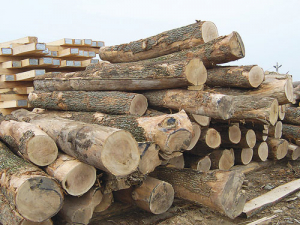ETS costs cut 66% for forest owners – McClay
Additional reductions to costs for forest owners in the Emissions Trading Scheme Registry (ETS) have been announced by the Government.
 There are both pros and cons for the forestry sector in proposed changes to overseas investment, according to Duncan Cotterill Law’s Christina Lefever.
There are both pros and cons for the forestry sector in proposed changes to overseas investment, according to Duncan Cotterill Law’s Christina Lefever.
Changes coming through from the Government on overseas investment in forestry have pros and cons, says Christina Lefever, a special council with law firm Duncan Cotterill.
Forestry cutting rights are being brought under the overseas investment regime but they are making processes more straightforward, Lefever told Rural News.
Currently overseas investors wanting to acquire freehold or leasehold interest in forestry land are screened but overseas investment in forestry rights is not.
Some changes to simplify forestry investment were made by ministerial directive to the Overseas Invest Office (OIO) in December but most of the changes will be made through the Overseas Investment Amendment Bill, she says.
The Government has brought forestry rights under the overseas investment regime whereas previously they were excluded, Lefever says. “Forestry rights will be brought under the OIO regime but they are introducing more streamlined tests to make overseas investment more straightforward for overseas buyers,” Lefever says.
One of those is the counter-factual test – where the investment is compared with a hypothetical New Zealand purchaser that may or may not exist.
“They have eased up the counter-factual test for overseas buyers buying up bare land to plant new forest. Their investment will be compared with the current land use. There will be no requirement to essentially compare their investment against some possibly hypothetical NZ purchaser who might also plant a forest.
“For an overseas buyer who is looking to purchase an existing forest that will look at the current rules on that forestry investment, whether there are supply arrangements in place with NZers, whether there are environmental protections currently in place on specific areas of the land, and whether the overseas investor is willing to commit to retaining all those arrangements; then in itself that will be enough.
“There will probably be a requirement to commit to replanting on harvest as well. But over and above that they don’t need to show some benefit above what any other forestry owner might actually do. That can be difficult to demonstrate when you are buying existing trees that will keep on growing regardless of who owns them.”
Lefever says the Government’s announcement that the Overseas Investment Act would be amended to cut out red tape is a positive signal to potential investors.
Forestry Owners Association president Peter Weir says though he still can’t see the point of including cutting rights in the scope of the OIO, the deepest objection to the working of the OIO seems to have been removed.
“We will welcome a more efficient OIO processing system,” Weir says.
“Forest Owners said when the Billion Trees in Ten Years Government target was formulated during the coalition negotiations that it would be very difficult to achieve that many trees planted if there were onerous obstacles to overseas investment imposed at the same time.
“Our industry as it is will be planting half of the total but to get to the billion trees New Zealand will need a lot of additional land, labour and investment. Investors are very sensitive to market signals, and quite frankly the Government signals have been mixed over the past few months.”
As New Zealand marks the United Nations’ International Year of the Woman Farmer 2026 (IYWF 2026), industry leaders are challenging the misconception that women only support farming.
Fonterra’s impending exit from the Australian dairy industry is a major event but the story doesn’t change too much for farmers.
Expect greater collaboration between Massey University’s school of Agriculture and Environment and Ireland’s leading agriculture university, the University College of Dublin (UCD), in the future.
A partnership between Torere Macadamias Ltd and the Riddet Institute aims to unlock value from macadamia nuts while growing the next generation of Māori agribusiness researchers.
A new partnership between Dairy Women’s Network (DWN) and NZAgbiz aims to make evidence-based calf rearing practices accessible to all farm teams.
Despite some trying circumstances recently, the cherry season looks set to emerge on top of things.

OPINION: Here w go: the election date is set for November 7 and the politicians are out of the gate…
OPINION: ECan data was released a few days ago showing Canterbury farmers have made “giant strides on environmental performance”.